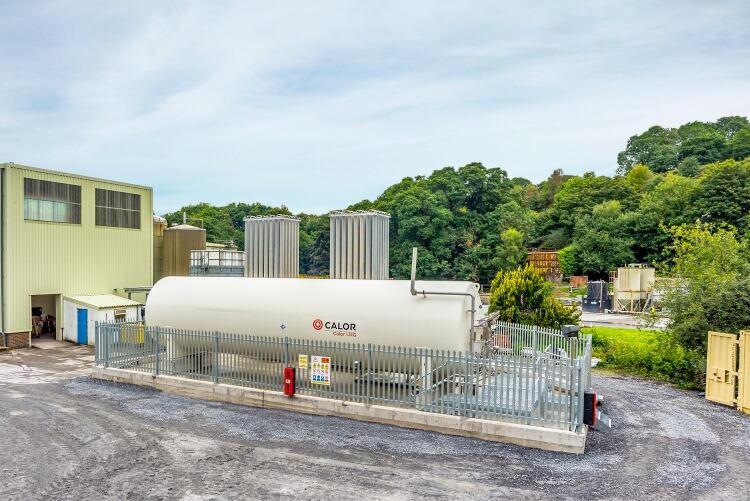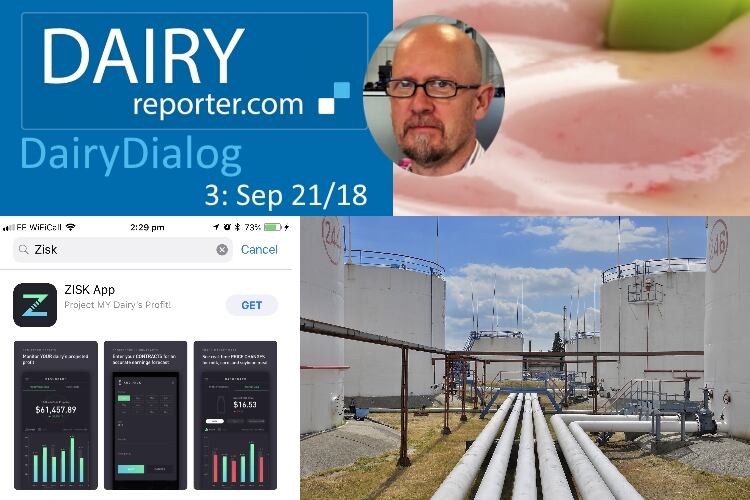The company, based off the mains gas grid in Newcastle Emlyn, west Wales, will become the first cheese manufacturer in the UK to be fuelled by LNG.
Many other dairy production sites are expected to follow suit, due to the improved cost savings and greater operational efficiencies available from the fuel when compared with alternatives, according to UK gas company Calor.
LNG can also help sites reduce their carbon emissions, with Dairy Partners’ facility in Newcastle Emlyn now set to cut its CO2 output by 30%, Calor said.
LNG option
Dairy Partners manufactures a range of cheese products – including mozzarella and pizza cheese – for food brands in the UK and around the world. Its manufacturing operations require process steam to convert fresh milk into mozzarella in block and string forms.
With the site processing 150m liters of milk every year, Calor said LNG is the ideal fuel to meet these energy-intensive demands.
Calor has supplied and installed a single, horizontal 60m3 above-ground LNG storage tank on the site, which is vacuum-insulated and features a twin ambient vaporiser system. The tank is also fitted with automatic top-up technology, so that an LNG delivery is automatically scheduled by Calor once it begins to run low on fuel, providing assured peace of mind to the business.
The investment in LNG at Dairy Partners’ manufacturing facility in Newcastle Emlyn is part of a wider program of energy reduction measures for the business. This includes a refrigeration project that has reduced the company’s electrical consumption by 20% for cooling processes.
Upgrades
Robert Peel, director of Dairy Partners, said, “Steam is used in dairy production for process heating, which is very energy-intensive. Therefore, a fuel that can reduce our site’s energy consumption while improving our carbon output was a hugely attractive proposition.
“We upgraded the site from heavy fuel oil to light fuel oil in 2013 as part of our ongoing sustainability strategy, with the plan to upgrade to gas in the future. While we did consider biomass at one point, generating steam from this source is quite a complicated process and wasn’t a viable option on our site.
“Calor put forward a sound commercial package, supported by a proven track record in LNG installations. LNG gives us the ability to cut our CO2 emissions by 30%, while reducing our costs at the same time too. Relying on the tank’s built-in system to monitor fuel levels also helps us hugely from an operational perspective, as it’s a job we no longer have to fulfil on site with oil deliveries.”
Sustainability
Oliver Knight, LNG Specialist at Calor, said, “Experts forecast that natural gas will be the fastest growing energy source of the 21st century. LNG is clean, easy to transport and economical, offered at a more stable price than alternative fuels, which means businesses can forecast their energy costs more accurately.
“Meanwhile, the fuel’s sustainability credentials are impressive too, with companies typically expected to reduce their CO2 emissions by approximately 30% when switching their energy source from heavy fuel oil.
“There is a huge opportunity for dairy production sites to benefit from converting to LNG, with Dairy Partners expected to reap the rewards from switching to LNG very quickly, with a payback period of only two years.”


